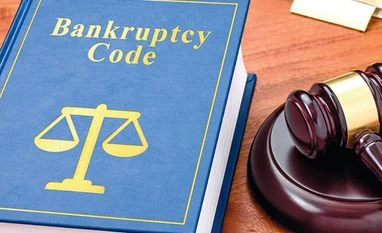The government is open to amending the Insolvency and Bankruptcy Code (IBC) to resolve practical difficulties and redress grievances, union minister P P Chaudhary has said, amid owners of many undelivered flats looking to seek relief under this law.
Assuring that the challenges thrown up by some cases would get resolved, the minister said the government is monitoring implementation of the Code.
The Code -- which provides for a market-determined and time-bound insolvency resolution process -- became operational in December last year.
"When we see it is not practically possible to implement certain provisions (of the Code) or practically on some count the Code is silent, then we can fill the gap by way of bringing some new amendment... If we think some amendment is required, then we will consider it," Chaudhary told PTI in an interview.
Further, the Minister of State for Corporate Affairs said that if a particular provision is harsh or unworkable, then that provision could even be omitted. It is "open for the government... to redress the grievances", he added.
He was responding to a query on whether the government would amend provisions under the IBC to ensure greater say for home buyers during insolvency process of real estate firms.
More From This Section
"As it is a new law, some cases would throw challenges, where there would be some apprehensions, which I am sure, would get resolved as we go forward with the implementation," the minister said.
A large number of flat buyers have been left in the lurch, especially in the National Capital Region (NCR), due to the long delay in deliveries amid the developers citing fund crunch. Many of them are looking for relief under the Code.
In August, the Insolvency and Bankruptcy Board of India (IBBI) had amended regulations that allowed individuals who have to receive a payment from an insolvent company to seek the claim under the Code.
The move has also enabled owners of undelivered flats to seek relief.
Separately, IBBI Chairperson M S Sahoo told PTI that a resolution plan should take care of interests of all stakeholders and also balance their interests.
Citing an example, Sahoo said in the matter of Prabodh Kumar Gupta versus Jaypee Infratech Ltd and others, the National Company Law Tribunal (NCLT) held that the petitioner is undisputedly a stakeholder.
Besides, the tribunal had said the "resolution professional is expected to consider and take care of the interests of the petitioner along with other stakeholders," he noted.
According to Chaudhary, the ministry is monitoring the implementation of the Code, practical difficulties which are being faced by some of the stakeholders and also getting feedback on implementation-related issues.
Once a case is admitted for insolvency or bankruptcy by the NCLT, then an interim resolution professional is appointed to take the process forward.
The interim resolution professional would "collect all information relating to the assets, finances and operations of the corporate debtor for determining its financial position.
Under the IBC, financial creditor implies any person to whom a financial debt is owed. The financial debt can include money borrowed for interest.
Operational creditor means a person to whom a company owes an operational debt, which includes those with respect to the provision of goods or services.
)